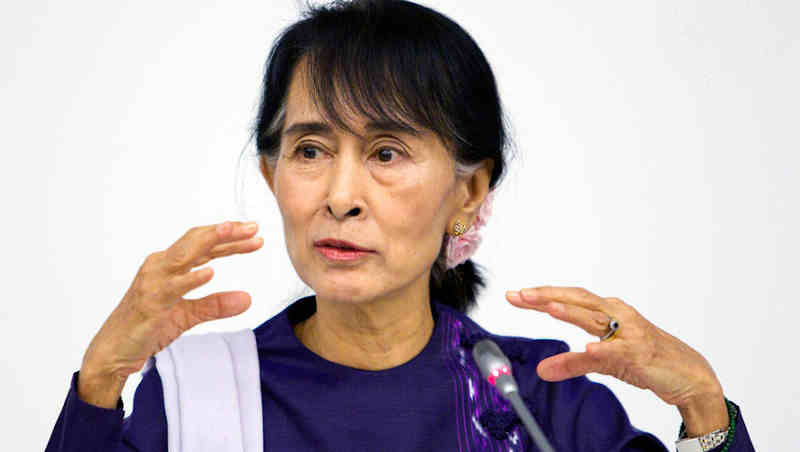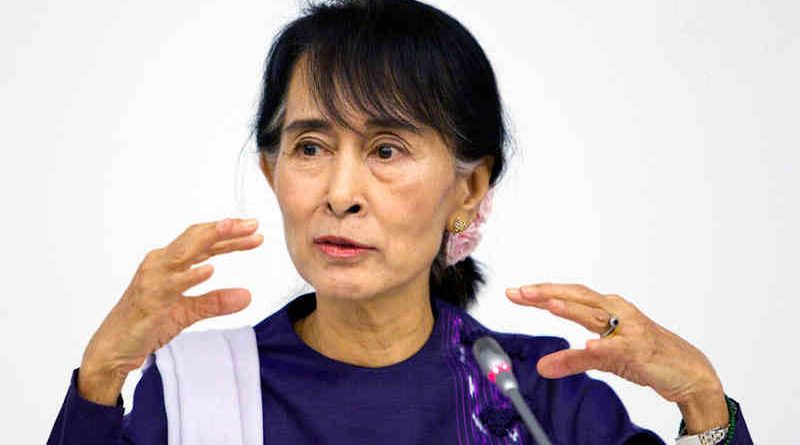Myanmar Faces Extreme Crisis: UN Human Rights Chief

Myanmar Faces Extreme Crisis: UN Human Rights Chief
Credible information indicates that over 34,000 civilian structures, including homes, clinics, schools and places of worship, have been burned over the past two years.
Two years after the Myanmar military launched a coup against the democratically elected government, the country has sunk deeper than ever into crisis and has undergone a wholesale regression in human rights, UN Human Rights Chief Volker Türk said on January 27.
“By nearly every feasible measurement, and in every area of human rights – economic, social and cultural, as much as civil and political – Myanmar has profoundly regressed,” he said, reflecting on the spiralling crisis since the attempted coup of 1 February 2021.
“Despite clear legal obligations for the military to protect civilians in the conduct of hostilities, there has been consistent disregard for the related rules of international law. Far from being spared, civilians have been the actual targets of attacks – victims of targeted and indiscriminate artillery barrages and air strikes, extrajudicial executions, the use of torture, and the burning of whole villages.”
“At this somber time, I want to acknowledge the courage of all those whose lives have been lost in the struggle for freedom and dignity in Myanmar, and the continuing pain and suffering of their families and loved ones.”
According to credible sources at least 2,890 people have died at the hands of the military and others working with them, of whom at least 767 were initially taken into custody. This is almost certainly an underestimation of the number of civilians killed as a result of military action.
A staggering further 1.2 million people have been internally displaced, and over 70,000 have left the country – joining over one million others, including the bulk of the country’s Rohingya Muslim population, who fled sustained persecution and attacks over the past decades.
Credible information indicates that over 34,000 civilian structures, including homes, clinics, schools and places of worship, have been burned over the past two years. Myanmar’s economy has collapsed with nearly half of the population now living below the poverty line.
Since the coup was launched, the military has imprisoned the democratically elected leadership of the country and, in subsequent months, detained over 16,000 others – most of whom face specious charges in military-controlled courts, in flagrant breach of due process and fair trial rights, linked to their refusal to accept the military’s actions.
“There must be a way out of this catastrophic situation, which sees only deepening human suffering and rights violations on a daily basis,” said Türk. “Regional leaders, who engaged the military leadership through ASEAN, agreed a Five-Point Consensus that Myanmar’s generals have treated with disdain.”
“Two of the critical conditions that were agreed – to cease all violence and to allow humanitarian access – have not been met. In fact, we have seen the opposite. Violence has spiralled out of control and humanitarian access has been severely restricted.”
The High Commissioner pointed to other measures that would be crucial to a political foundation for resolving the crisis: the release of all political prisoners, including State Counsellor Aung San Suu Kyi and President U Win Myint, as called for by the UN Security Council; inclusive dialogue with all parties — involving both the ASEAN Chair and the UN Special Envoy; and allowing the UN Human Rights Office meaningful access to the country to monitor the situation independently and impartially.
“Restoring respect for human rights is a key to ending this crisis, to end this situation where Myanmar’s generals are trying to prop up through brute force a decades-old system in which they answer to no-one but themselves,” said Türk.




